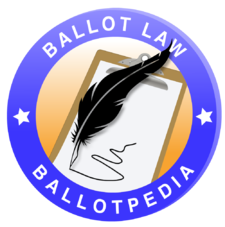2008 single-subject rule challenges
From Ballotpedia
Single-subject rule challenges and litigation occur it is claimed that a proposed ballot initiative violates the single-subject rule, and administrative challenges or legal action are taken to prevent the initiative from going to a vote based on that claim. Single-subject challenges can be brought by government action or by non-governmental adversarial litigants.
- Two lawsuits have been filed against Missouri Proposition A contesting its ballot title and ballot description.[1]
- The Michigan Legislative and Judicial Restructuring Initiative (2008) was struck from the ballot in mid-August in response to the lawsuit, Pirich v. Land, while argued that the initiative tried to do too many things. Michigan doesn't have a single-subject rule per se, but a three-judge panel of the Michigan Court of Appeals ruled unanimously Aug. 20, 2008, that the proposed ballot measure was an illegal attempt to enact a general revision of the state constitution, something that must be done by calling a constitutional convention. The panel called the number and scope of the proposed changes "overarching" and unprecedented.[2][3]
- On April 18, Carson City district judge Bill Maddox ruled that the Funding Nevada's Priorities Act did not violate Nevada's single-subject rule. Plaintiffs had argued that the measure violated the single-subject rule and that the description did not adequately explain the proposal to voters, but Judge Maddox ruled that the petitions were within legal guidelines. The Las Vegas Convention and Visitors Authority and every municipality in Clark County had filed the suit March 21, 2008. The Education Enhancement Act Initiative was challenged in court on similar grounds and it also survived the challenge.[4]
See also
- What is the single-subject rule?
- Latest Ballot Access Lawsuit News
- 2008 ballot title challenges
- Petition blocking
Footnotes
- ↑ Southeast Missourian, "Two lawsuits challenging casino ballot measure", August 15, 2008
- ↑ Detroit Free Press: "State Court of Appeals: Proposal to reorganize government won’t see November ballot," Aug. 20, 2008
- ↑ Detroit News: "Reform ballot proposal rejected," Aug. 21, 2008
- ↑ Las Vegas Review-Journal: "Initiative backers dismiss resistance," March 22, 2008
